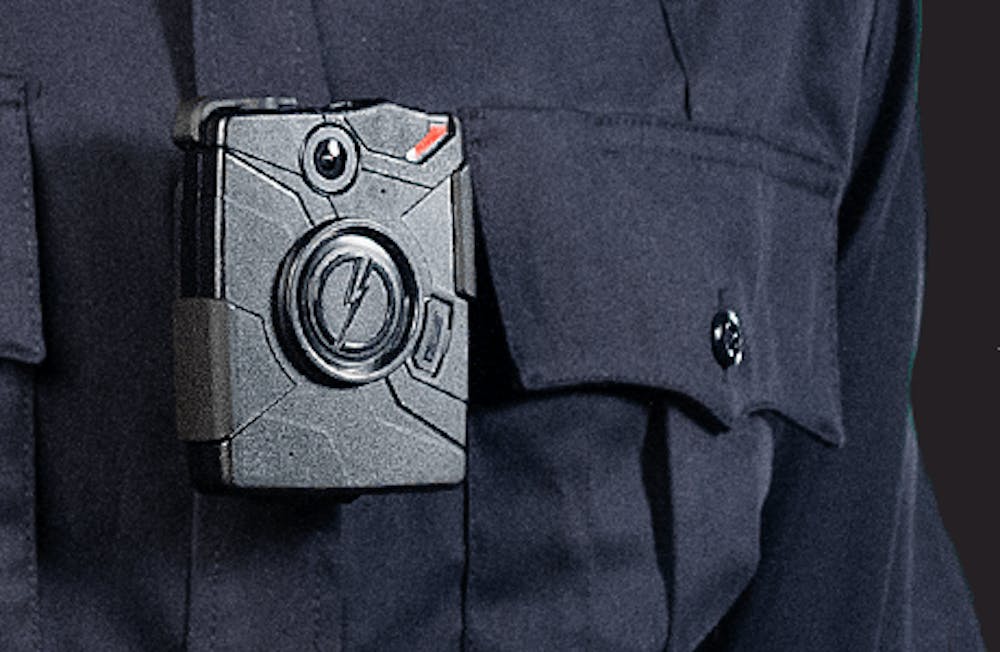Every officer of the University Police Department will wear body cameras following a new policy implemented in June.
The department is also incorporating camera usage among security officers.
The policy was implemented after the University’s General Counsel and the Commonwealth’s attorneys in Albemarle and Charlottesville together developed a new written policy for the department.
Officers are required to activate their body cameras when responding to calls for service and during all law enforcement encounters, with very few exceptions, UPD Captain Melissa Fielding said.
All video collected will be held for 90 days, unless it is seen as potential evidence in court, in which case it will be held indefinitely.
The UPD began researching, selecting and purchasing body cameras in the spring of 2014. No specific incident prompted this research, Fielding said.
“We continually look for ways to improve the level of service we provide,” Fielding said in an email statement.
The UPD has bought 150 body cameras so far. In addition to the 67 police officers already outfitted with body cameras, UPD is in the process of implementing this policy for security officers.
Student Council President Abraham Axler served on an ABC panel which discussed the use of body cameras with enforcements officers across the state. The use of cameras leads to far fewer police confrontations, he said.
“The unintended consequence of body cameras is that everybody behaves better when they know they are on camera,” the third-year College student said. “It’s pretty intuitive, if you know somebody is paying attention, you behave better — to me, that is a very good indicator that it is a good thing to do.”
The presence of body cameras will further serve as a reminder of the accountability for all parties, Axler said, and he believes this accountability is essential in maintaining good officer relationships with students.
“What is essential to keeping the relationship between students and law enforcement healthy, is the mutual recognition that everybody is human,” Axler said,
To do this it is important for there to be a system of dialogue between students and law enforcement, Axler said. He said he is working to create more public events for the police department to engage with students.
Aryn Frazier, third-year College student and president of the Black Student Alliance, said she hopes the new policy will strengthen police accountability.
“I’ve heard that when people speak, they don’t always hear themselves, the way that they sound,” Frazier said. “Having that footage and going over it will hopefully make them more conscious of their own aggression and hopefully leads to better interactions with civilians.”
In addition to increasing police accountability, the UPD expects the body-worn cameras to improve the behavior of the officers and civilians being recorded, and provide an accurate record of events. The UPD plans to use the videos to both monitor and train officers.
There remain other issues with community policing that need to be addressed, Frazier said.
“I think they also need more diverse training, they need to reform the ways in which they police the areas,” Frazier said. “I don’t think any single action could be taken to fix all of it.”
Read this article in Mandarin on The Cavalier Daily translation blog.







